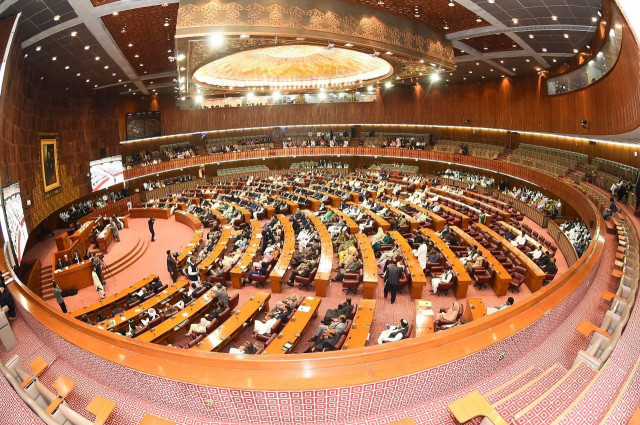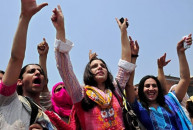K-P may lose 6 NA seats: experts
Census results raise concerns about representation, resource allocation

A symposium organized by the Institute of Regional Studies (IRS) Peshawar shed light on the evolving narrative surrounding the Census 2023 results. Diverse experts and leaders from various political factions converged to discuss the implications of the census outcomes, particularly on Khyber Pakhtunkhwa (K-P). Their collective apprehension revolves around potential distortions in political representation, resource allocation, and overall fairness in the census process.
According to statements made at the event, the reported population figures for K-P within the Census 2023 have sparked concerns, with many asserting that the province’s true population might have been underestimated. This discrepancy is expected to significantly impact K-P’s representation in the National Assembly, leading to a potential reduction in the province’s allocated seats.
The repercussions extend to the distribution of resources under the National Finance Commission (NFC) award, where K-P could face a projected loss of up to Rs2 trillion. Prominent figures such as Dr. Muhammad Iqbal Khalil, Chairman of IRS, Inayatullah Khan from Jamaat-e-Islami (JI), Ahmed Khan Kundi of the Pakistan Peoples Party (PPP), Salahuddin from the Awami National Party (ANP), Statistician Javed Khalil, and Prof. Dr. Fazlur Rehman Qureshi voiced their concerns and observations during the seminar. Dr. Khalil highlighted the disparity in K-P’s population growth rate as recorded in the census, underscoring that this discrepancy could lead to a reduced National Assembly representation compared to provinces like Sindh.
He pointed out that even the representation of women in K-P could be negatively impacted. He warned that K-P could lose six National Assembly seats, with these seats potentially being redistributed to Punjab, Sindh, and Balochistan. The attendees emphasized the incomplete composition of the Council of Common Interests (CCI) and the perceived overreach of the caretaker government in approving the census results. Dr. Khalil questioned the validity of the census data, particularly as K-P’s interests appear to have been undermined. Inayatullah Khan of JI drew attention to the significant number of K-P residents living abroad, proposing that the census should accommodate these individuals to present a more accurate population count.
He also noted that K-P’s share of the NFC allocation, which is largely population-based, would be adversely affected by any discrepancies in the census data. Ahmed Khan Kundi underscored the vital role of the census in informing policy decisions and resource allocation. He cautioned against dismissing the census results, highlighting the potential dire consequences of neglecting this fundamental data source. Salahuddin echoed the sentiment of historical injustices toward K-P and emphasized the urgency of rectifying this pattern. Javed Khalil added a historical perspective, contrasting the representation of tribal districts in the 1970s with the present allocation of seats, expressing his surprise at the apparent regression.
The participants collectively called for a non-partisan unity among political forces to safeguard K-P’s interests, rallying against any injustices arisi



















COMMENTS
Comments are moderated and generally will be posted if they are on-topic and not abusive.
For more information, please see our Comments FAQ